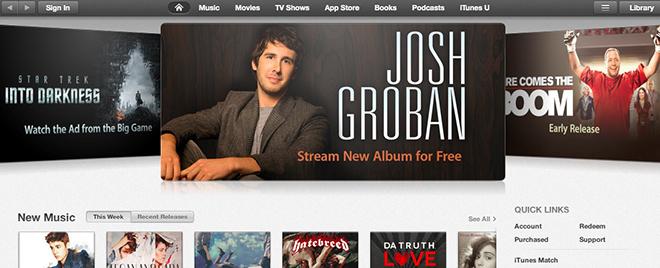California's Supreme Court ruled on Monday that Apple did not violate the state's privacy laws by requiring that customers provide addresses and phone numbers to accept credit card payments.
Plaintiffs in the case, Reuters reports, had sued Apple and a number of other online retailers, all of which required customers to provide both addresses and phone numbers in order to complete credit card purchases. The plaintiffs — who had purchased content from iTunes — claimed that the requirement constituted a violation of California privacy laws, which prohibit retailers from unnecessarily gathering consumer information.
In a split decision, the court ruled that those laws do not apply to online purchases that are downloaded electronically. The same court ruled in 2011 that those privacy protections do apply to physical retail locations, barring brick and mortar stores from requesting customers' ZIP codes during credit card purchases.
The three dissenting judges called the ruling a win for retailers but "a major loss for consumers, who in their online activities already face an ever-increasing encroachment upon their privacy."
The four judges of the majority said the plaintiff had raised "ominous assertions" about Apple encroaching on consumer privacy rights. Those assertions, "though eye-catching, do not withstand scrutiny," they wrote in the majority opinion.
 Kevin Bostic
Kevin Bostic








 Charles Martin
Charles Martin
 Marko Zivkovic
Marko Zivkovic
 Andrew Orr
Andrew Orr
 Amber Neely
Amber Neely

 William Gallagher and Mike Wuerthele
William Gallagher and Mike Wuerthele











31 Comments
Not the smartest bunch, these plaintiffs? I mean, this law can be looked up, no?
Seriously, if they are not asking for that info, they are not doing their job to protect the card owner.. that info is used to verify purchasers.. anyone can be using that card. Address and phone verification is one of the few checks they have.. With online purchases, It's not like they can ask for your ID if you didn't sign the back of the card.
REALLY? If you own a home - do you think the government has protected your name and address? Try going through Deeds or Tax lists in any State. The postman knows where you live - ever have a magazine delivered to your home? They share with affiliates. How about the pizza guy and Dominoes pizza or papa johns - They Know! There is also intelius.com and all sorts of apps and the biggest privacy offender - an old fashioned Telephone book. BEWARE!!!! they are coming for you!!
Not the smartest bunch, these plaintiffs? I mean, this law can be looked up, no?
It was actually a pretty close decision. If just one of the 4 judges that ruled in Apple's favor had instead decided the opposite then Apple would have lost at the California SC The ruling was split 4-3.
It's becoming clear that your privacy and rights to ownership are ever increasingly being taken away.